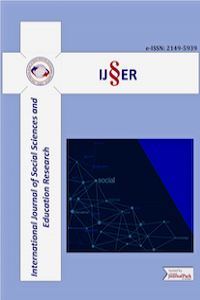Richard Rosecrance’in sistem yaklaşımı temelinde soğuk savaş sonrası dönem ve uluslararası sistemde istikrar
Soğuk Savaş sonrası dönemde Westphalian paradigma sorgulanmaya başlamış ve teorisyenler tarafından uluslararası sistemin yeni yapısına dair çeşitli görüşler dile getirilmiştir. Söz konusu teorisyenlerden biri de Richard Rosecrance’dır. Rosecrance’a göre Soğuk Savaş sonrası dönemde Amerika Birleşik Devletleri uluslararası sistemde temel düzenleyici güç olmakla birlikte, Rusya, Japonya ve Avrupa Topluluğu/Birliği uluslararası politikada güç merkezleri olarak ön plana çıkma potansiyeline sahiptir. Rosecrance daha sonra bu aktörlere Çin’i de eklemiştir. Bu çerçevede Rosecrance, Soğuk Savaş sonrası uluslararası sistemde ABD’nin temel düzenleyici aktör olduğu çok-merkezli bir yapı potansiyelinin olduğunu ileri sürmektedir. Rosecrance’a göre uluslararası sistemdeki anarşik yapı, güç dengesi ya da nükleer denge yoluyla değil, merkezi bir koalisyon yoluyla kontrol altına alınmalıdır. Her ne kadar Soğuk Savaş sonrası uluslararası sistemde bölgeselleşme eğilimleri ortaya çıksa da bu durum, Amerika Birleşik Devletleri merkezli bir koalisyon oluşumuna engel teşkil etmemektedir. Richard Rosecrance söz konusu koalisyona bütün büyük güçlerin işbirliği temelinde dahil olması gerektiğini savunmaktadır. Çalışmada Rosecrance’ın Soğuk Savaş sonrası uluslararası sistemin yapısına ilişkin önermeleri ve bu önermeler temelinde sistemin istikrarı için gerekli olduğunu iddia ettiği hususlar analiz edilecektir.
Anahtar Kelimeler:
Uluslararası sistem, İstikrar, Bozucu etki, Düzenleyici etki, Merkezi koalisyon
Post-cold war era and stability in international system in the perspective of system approach of Richard Rosecrance
The Westphalian paradigm has been re-assed, and there have been made new statements by theoreticians about the structure of international system following the Cold War. One of these theoreticians is Richard Rosecrance. Rosecrance claims that the United States of America has been the fundamental regulatory power following the Cold War. However, Russia, Japan and the European Community/Union has been also potential centres of power. Rosecrance has added China to these potential powers. He asserts that it could be formed a central coalition led by the United States of America, comprising of other great powers, and so, the anarchic structure of international system could be controlled by this multi-centric coalition. Although, there has been regionalism trends following the Cold War, this situation has not been an impediment to forge a central coalition in global scale. Such a central coalition should be forged on the basis of co-operation, and incorporate all great powers. The paper analyse the statements of Richard Rosecrance regarding the structure of international system following the Cold War, and stability of the system in his perspective.
Keywords:
International System, Stability, Disruptive Influence, Regulatory Influence, Central Coalition,
- Yayın Aralığı: Yılda 4 Sayı
- Başlangıç: 2015
- Yayıncı: Mahmut DEMİR
Sayıdaki Diğer Makaleler
Kalkınma Ajansları: “Ankara Kalkınma Ajansı” özelinde bir araştırma
Kamu Hastaneleri Birlikleri verimlilik değerlendirmesinde verimlilik karnesi uygulaması
İletişim Süreci Yönetimi ile E-Portfolyo Süreci Yönetiminin Karşılaştırılması
Müziksel işitmenin gerçekleşme süreci
